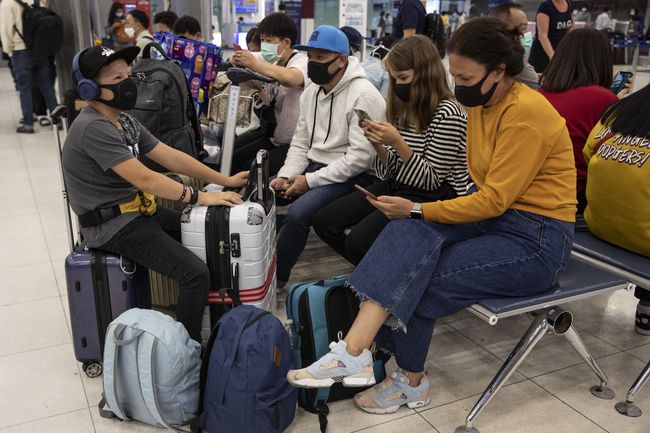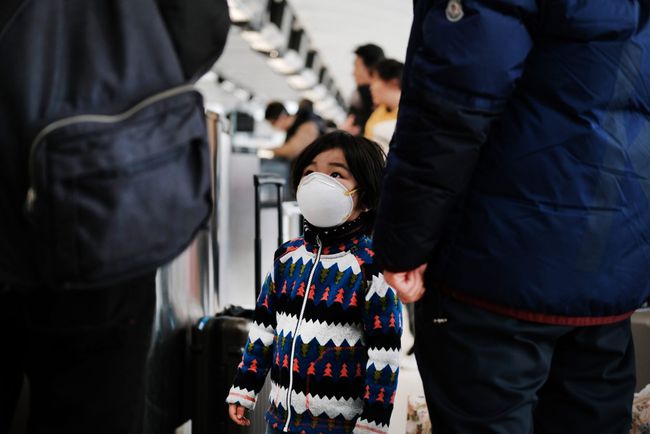COVID-19 has impacted travel plans for years now. When the pandemic began, many countries implemented travel restrictions and even placed bans on travelers as coronavirus cases surged. Masks became mandatory for airplanes and public transportation, and the Centers for Disease Control and Prevention (CDC) issued an order for all international travelers—as well as Americans traveling abroad—to test negative for COVID-19 before entering the U.S.
Over the past few months, these protective measures have been slowly easing up, given the widespread distribution of vaccines and lowered severity of COVID symptoms. The Biden Administration dropped its airplane mask requirement in April, and now international travelers don’t need to show a negative COVID-19 test result before boarding America-bound flights. This mandate will drop after midnight on June 12. It will be reassessed by the CDC in 30 days and reinstated if necessary.
Still, the CDC urges Americans to delay travel until they are up to date with their COVID-19 vaccines but gives the green light to all travelers regardless of vaccination status as long as they take proper safety precautions and meet various requirements.
Given these restrictions and recommendations, travelers might wonder if it's safe to fly. Here's a rundown on the latest coronavirus travel advisories so you can make informed decisions about your family's travel plans. Experts also weigh in on precautions to take when traveling during the pandemic.

Current CDC Recommendations
The CDC recommends putting off travel until you are up to date on your COVID-19 vaccines, and even then, it’s best to take safety precautions. Here are the latest travel recommendations.
Domestic travel and COVID-19
The CDC recommends being up to date on your COVID-19 vaccines before travel, wearing a mask, and washing your hands frequently. Also, “consider getting tested for current infection with a viral test as close to the time of departure as possible (no more than three days) before travel,” says the organization. Take extra precautions if you’re traveling somewhere with medium or high COVID-19 community levels; check out the CDC’s map here. After travel you’ll want to self-monitor for symptoms and possibly get tested. Don’t travel if you’re quarantining after exposure to COVID-19, you are sick, you test positive for COVID-19 and haven’t ended isolation, or you’re waiting for results of a COVID-19 test, says the CDC.
International travel and COVID-19
International travel is also considered safe for vaccinated Americans. However, it may pose more of a risk than domestic travel, so you’ll still want to follow all recommended safety precautions, including checking the current COVID-19 situation at your destination.
The CDC recommends that all travelers get tested no more than three days before their international trip (though it’s not a requirement). Until 12:01 a.m. on June 12, international travelers ages 2 and up must show a negative COVID-19 test taken no more than one day before travel to the U.S. All air passengers are also required to provide contact information to the airline before boarding an international flight to the U.S. It’s also recommended that you get a COVID-19 test three to five days after travel—and that goes for all travelers, vaccinated or not. Travelers who are up to date on their COVID-19 vaccines can skip self-quarantining after returning to the U.S.; those who aren’t should consider self-quarantining for five days.
Note that for any travel, whether domestic or international, vaccinated parents with unvaccinated kids may want to proceed with caution and weigh the risks of traveling before booking a trip. Also check state, local, airline, and destination travel restrictions before booking your trip to make sure there’s nothing else you’ll need to do.
- RELATED: Long COVID in Kids: What Happens When Coronavirus Symptoms Linger for Weeks or Months

CDC Travel Advisories
In an effort to control the spread of the coronavirus, the CDC and the U.S. State Department issue a “level four” status—which means you should avoid all travel to them—on many international destinations where the COVID-19 risk is considered “very high.” The organizations also issue a “level three” status for places with high risk and “level two” status for places with moderate risk. It’s a good idea to check the CDC to see which locations are considered lower risk before booking your trip.
How Can I Prevent COVID-19 While Traveling?
Unfortunately, there’s still much uncertainty regarding COVID-19, according to Miryam Wahrman, Ph.D., author of The Hand Book: Surviving in a Germ-Filled World. And while the Food and Drug Administration (FDA) has approved three COVID-19 vaccines (Moderna, Pfizer, and Johnson & Johnson), people under 6 months aren’t yet eligible to get them. That’s why it’s still important to take safety precautions while traveling.
The CDC still recommends the use of face masks in indoor public settings where COVID-19 community levels are high. It’s important to note, however, that community levels do not change current travel requirements. When traveling, it’s still recommended (though no longer federal law) for all people to wear face masks in airports and on planes regardless of vaccination status.
Practicing proper hand hygiene is also key to preventing COVID-19 transmission. “Wash your hands with soap and water—especially before eating and touching your face,” says Kathleen DiCaprio, Ph.D., an infectious disease expert from Touro College of Osteopathic Medicine who helped develop the vaccine for the Ebola virus. Scrub for at least 20 seconds, rinse with water, and thoroughly dry with a clean paper towel.
There are also other ways to prevent transmission when traveling by plane. Use alcohol-based sanitizer or disinfectant wipes on items other people have touched, such as tray tables and armrests. Take measures when going through security, when “your stuff touches bins that held other people’s stuff and could pick up germs,” says Dr. Wahrman. She recommends bringing a few clear zip-top bags for your loose items before putting them in the bins. It’s also worth checking what safety measures the airline is taking to make travel safer for its customers. United Airlines, for example, has partnered with Clorox and the Cleveland Clinic to ensure it meets the latest disinfection protocols during every flight.
- RELATED: Quarantining at Home: What to Do After a COVID-19 Exposure or Diagnosis
Finally, "if you see that there's somebody who looks visibly sick, try to create a little distance," says Dr. Wahrman. Granted, this might be easy in waiting rooms and baggage claim, but not so much if you're stuck next to a sick person on the plane.
Also remember it's possible that "you could be asymptomatic and still contagious," says Dr. Wahrman. This means someone you encounter might look perfectly healthy but is actually carrying the coronavirus. "Just be aware of the things you've been in contact with that could carry viruses and bacteria from other people," says Dr. Wahrman.
So, Should I Travel During the COVID-19 Pandemic?
At the end of the day, "you have to make a personal decision about the risk you're taking," says Dr. Wahrman. You're not required to cancel your travel plans, but the changing landscape and challenges faced by families with children still too young to be vaccinated can make safe air travel tricky.
“At this point, people who are traveling or plan to in the future should be aware of the certain travel restrictions and periodically check the CDC website on these restrictions. It may be helpful to check for any updates from the airlines and/or the airports they are arriving to or departing from as well,” says Dr. DiCaprio.
